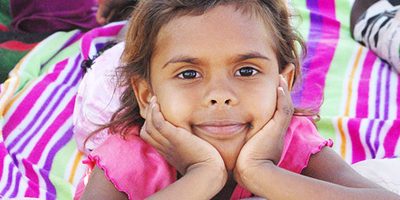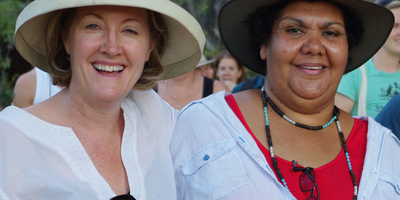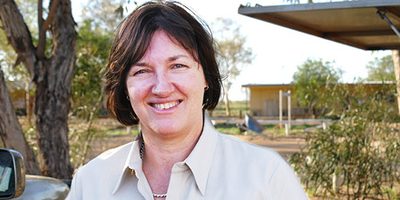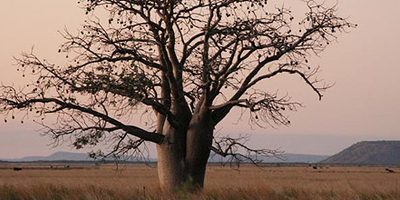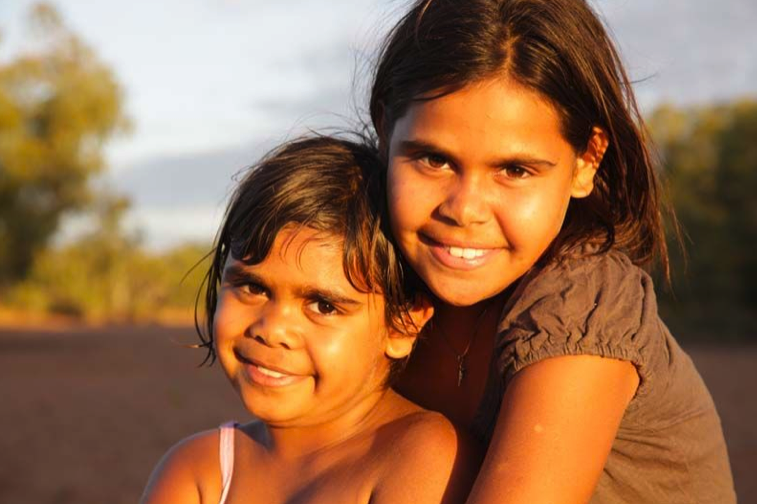
Marulu - Overcoming Fetal Alcohol Spectrum Disorders (FASD)
It was July 2007 when a group of Aboriginal Australian women had had enough. Thirteen suicides in thirteen months and 50 funerals in a year rocked the small community of Fitzroy Crossing in Western Australia’s Kimberley region. Initiated by Aboriginal women June Oscar and Emily Carter and others, and with the support of their top cultural leaders, restrictions on full strength take-away alcohol began in October 2007.
Almost immediately, improvements were seen in safety, health, education, and cultural strength. Children were no longer afraid to go home, and older people were no longer harassed by their relatives or forced to find somewhere else to live. But the restrictions are only the first step.
In mid-2009, Aboriginal leaders in the Fitzroy Valley saw that too many children and families were suffering permanent physical and mental effects from alcohol use during pregnancy. Many young mothers were not aware of the harm they were causing their unborn children. Unborn babies exposed to alcohol are at risk of Fetal Alcohol Spectrum Disorders (FASD), a range of disorders affecting everything from the brain and nervous system to the kidneys and heart.
Children with FASD often have developmental, behavioral and learning problems. They do not perform well in school because children with FASD cannot communicate effectively or have bad memory. The inability to remember the stories and traditions of their elders, or to communicate their culture to future generations, poses a real threat to the survival of Aboriginal culture in the Fitzroy Valley.
The damage is permanent, but FASD is 100% preventable.
Marulu - The Lililwan Project
Many children in Fitzroy Valley could be affected by FASD, but the exact number is unknown. To find out how widespread FASD is in the communities of Fitzroy Valley, community leaders initiated a partnership between Nindilingarri Cultural Health Services, Marninwarntikura Woman’s Resource Centre, The George Institute for Global Health and the Discipline of Paediatrics and Child Health at The University of Sydney Medical School. This partnership is conducting Australia’s first ever prevalence study of FASD, the Lililwan Project.
Meaning “all the little ones”, Lililwan’s collaborative team includes experts in local Aboriginal culture, Aboriginal and Torres Strait Islander health, paediatrics, research, epidemiology and human rights. The Lililwan Project is part of a broader community strategy, Marulu: Overcoming FASD and Early Life Trauma in the Fitzroy Valley, which is working towards healing these Indigenous communities and creating a brighter future for their children.
The Lililwan Project will do more than just estimate the number of children affected by FASD. Each child will be given a personalized FASD management plan involving their families, doctors and teachers. The project will also educate the communities about the risks of drinking alcohol during pregnancy and about the challenges faced by children with FASD and their families.
Marulu - The Lililwan Project grew from the needs within an Indigenous community. The need to heal the pain of past alcohol use and the need to preserve their future and culture is what guides this project. In a culture where traditions, stories, and ways of life are orally passed from one generation to the next, FASD threatens the very existence of Aboriginal culture in the Fitzroy Valley. The healing has already begun, but the work is just getting started.
Improving child health in remote Aboriginal communities
The George Institute for Global Health develops innovative models of health care designed specifically for disadvantaged communities and resource poor settings. The Cages Foundation is supporting the trial of an innovative model of care for Aboriginal and Torres Strait Islander children which links child health and development with education. Multidisciplinary health clinics based in the local school will develop and manage a care plan for more than 500 children in close collaboration with their family. Importantly, the model has the potential to be rolled out to other remote Aboriginal communities across Western Australia and nationally.
The model will be delivered in the Fitzroy Valley in Western Australia in partnership with local doctors, health care workers, teachers, Aboriginal community organisations. The trial will be implemented by the following organisations: Marninwarntikjura Women’s Resource Centre and Nindilingarri Cultural Health Service Fitzroy Crossing; WA Country Health Service; Kimberley District Education Office and Fitzroy Valley schools; The George Institute for Global Health and the Telethon Institute for Child Health Research.



